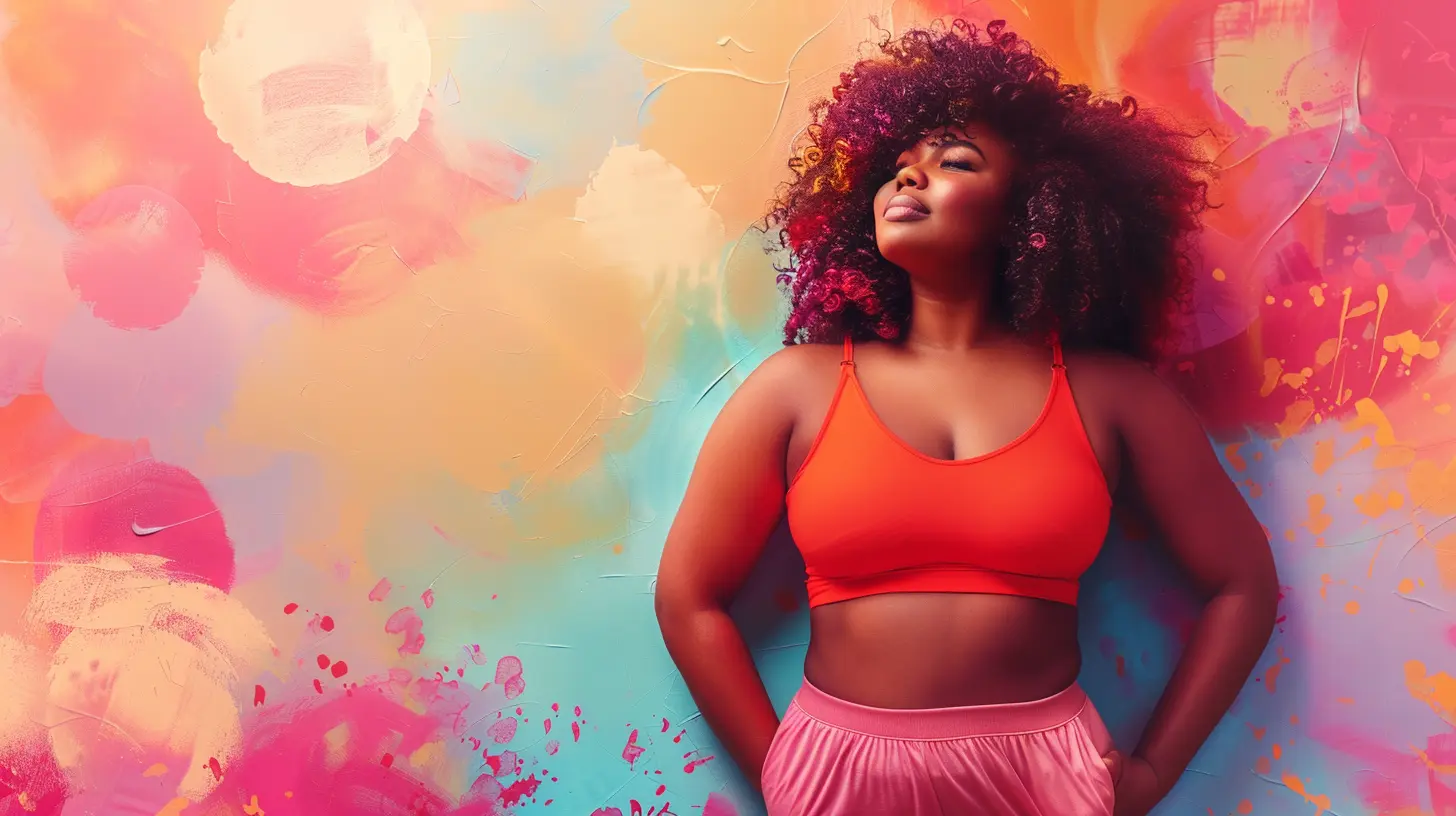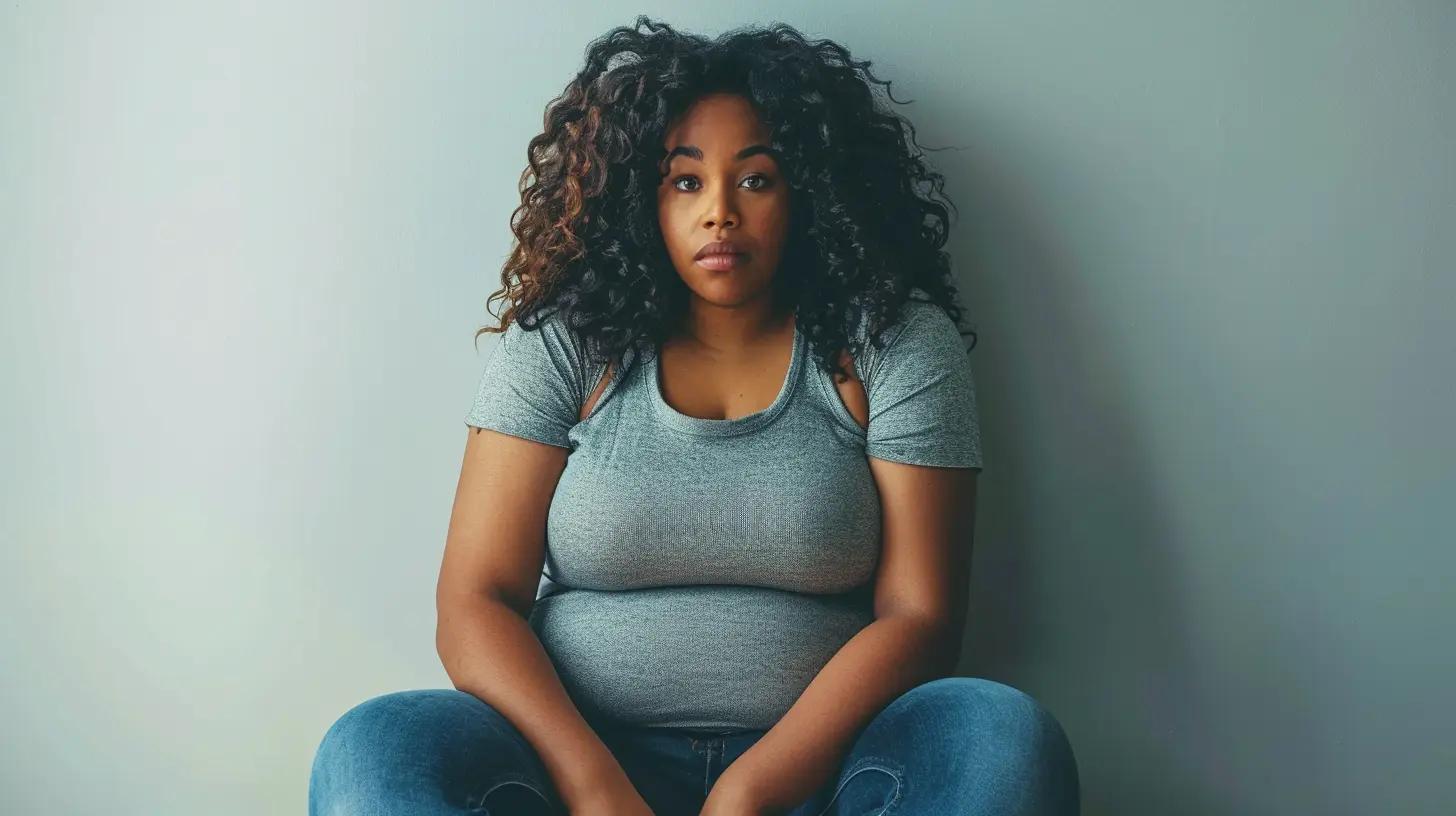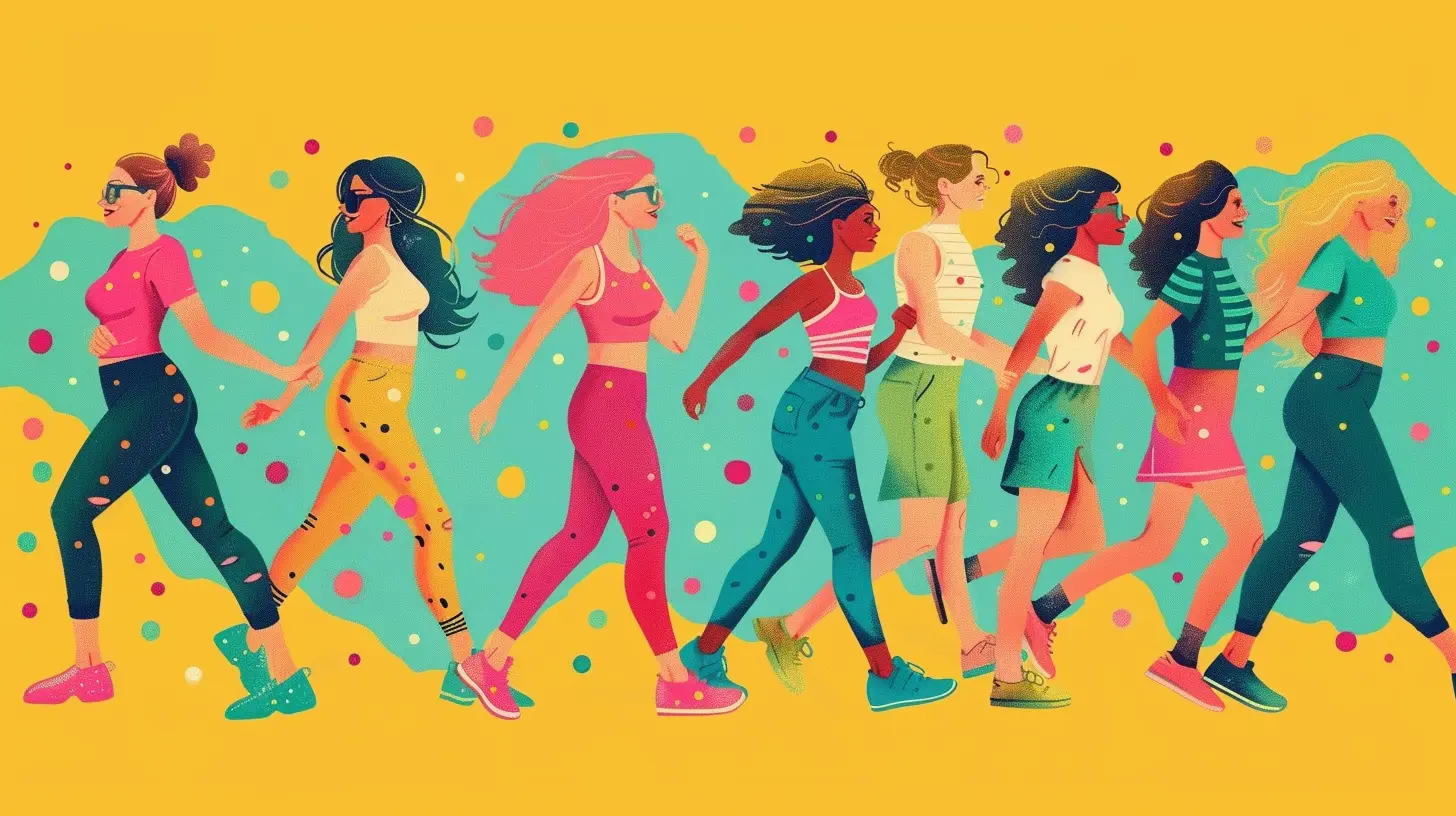Why Body Positivity is a Radical Political Statement
4 October 2025
Body positivity. You’ve heard the phrase floating around social media, plastered across ad campaigns, maybe even debated in dinner table discussions. But what if I told you that body positivity isn’t just about feeling good in your skin? What if it’s something much bigger—a radical political statement?
This isn’t just another self-love movement. It's a rebellion, a challenge to a deeply embedded system that profits from insecurity. So, let’s dive into what makes body positivity a disruptive force against societal norms, capitalism, and even oppressive power structures.

The Origins of Body Positivity: More Than Just Self-Love
Body positivity didn’t just pop up because a few influencers decided to post unfiltered selfies. It has deep roots in activism, dating back to the Fat Acceptance Movement of the 1960s.At the time, a group of activists began challenging discrimination against fat people, calling out doctors, workplaces, and media that treated larger bodies as lesser. These weren’t just conversations about personal confidence; they were a direct critique of a system that defined worthiness by weight.
Fast forward to today, and body positivity has expanded to include all bodies—fat, thin, disabled, scarred, trans, and beyond. But at its core, it still carries that same defiant energy: a refusal to let anyone dictate the value of a body.

Why Society Fears Body Positivity
If body positivity were just about taking cute pictures in bikinis, no one would bat an eye. But it’s not. It’s about dismantling an industry that thrives on insecurity.Think about it—entire billion-dollar industries are built on convincing people they’re not good enough. Diet culture, beauty standards, cosmetic procedures… they all rely on us believing we need to be "fixed."
A truly body-positive world is terrifying for these industries because it means people might stop buying their way to self-worth. If you suddenly started loving your stretch marks, cellulite, or scars instead of seeing them as flaws, businesses would lose money. That’s the real reason body positivity is seen as dangerous—it threatens profit.

Capitalism and the Beauty Industry’s War on Self-Acceptance
For decades, corporations have dictated what’s "beautiful." From airbrushed magazine spreads to filtered social media posts, beauty is marketed as something attainable—if you just buy the right products, follow the right diet, or get the right procedures.But here's the catch: the standard is always changing. Thin was in, then curvy was in, then ultra-thin again. Skin should be pale, then tan, then "glowing" but not too textured. It’s an impossible game designed to keep consumers chasing an ever-moving goalpost.
Body positivity disrupts this cycle by saying, "What if you didn’t need to change at all?" What if the problem isn’t your body but the people telling you it’s not good enough?

Body Positivity as a Feminist Issue
Women, in particular, have been conditioned to believe their worth is directly tied to their appearance. From childhood, we’re bombarded with messages that being attractive equals being valuable.When women embrace body positivity, they’re rejecting a system that tells them their primary role is to be visually appealing. They’re shifting the focus from how they look to what they do, what they think, what they create.
And let’s be honest—when women stop obsessing over weight loss and beauty standards, they gain time and energy for activism, education, leadership, and self-growth. That makes body positivity a feminist act, and feminism has always been political.
Marginalized Bodies and the Fight for Visibility
Body positivity isn’t just about weight. It’s about all bodies that have been pushed to the margins.- Disabled bodies are often erased from beauty narratives.
- Trans bodies are scrutinized and policed.
- Black and brown bodies are held to Eurocentric standards of beauty.
- Plus-size bodies are treated as "before pictures" rather than whole, worthy beings.
When body positivity demands representation and respect for all bodies, it shakes the very foundation of a society built to uplift only one type of body—the thin, white, able-bodied ideal.
The Backlash Against Body Positivity
Anytime a movement gains power, there’s backlash. Body positivity is no different.Critics call it an “excuse for obesity,” claim it “promotes unhealthy lifestyles,” or argue that “not everyone deserves to feel beautiful.” Some even insist that accepting all bodies will lead to laziness or a decline in health.
But let’s flip that script. Why is self-acceptance considered more dangerous than self-hatred?
The truth is, body positivity isn’t about ignoring health. It’s about rejecting the idea that worth is tied to weight. It’s about understanding that you can take care of your body without hating it. It’s about shifting the focus from punishment (dieting, starvation, over-exercising) to care (movement, nourishment, rest, and self-compassion).
The Connection to Mental Health
Body image issues aren’t just about vanity. They’re directly linked to mental health struggles, eating disorders, anxiety, and depression. When people feel their bodies make them unworthy, it can lead to deep psychological wounds.Now, imagine a generation that grows up believing they are enough exactly as they are. Imagine a society where people no longer waste years of their lives trying to shrink themselves into acceptability.
That’s why body positivity is revolutionary—it’s not just about how we see ourselves, but how we treat ourselves. And when we stop punishing ourselves, we stop letting the world punish us too.
Body Positivity and Social Justice
At its core, body positivity is a fight for bodily autonomy—the right to exist without shame, discrimination, or expectations. And that makes it deeply tied to social justice movements.Think about it:
- The push for gender equality? Incomplete without body liberation.
- The fight for racial justice? Entangled with beauty standards rooted in white supremacy.
- The battle for disability rights? Directly impacted by society’s treatment of non-normative bodies.
When we embrace body positivity, we’re not just saying, “I love myself.” We’re saying, “I refuse to let society dictate which bodies are worthy of dignity and respect.”
The Future of Body Positivity: Where Do We Go From Here?
Body positivity isn’t just a social media trend—it’s a movement with the power to change how we see ourselves and others. But its survival depends on keeping its radical roots intact.That means:
- Moving beyond corporations that use body positivity as a marketing gimmick.
- Recognizing the voices of marginalized people who started and continue this fight.
- Calling out industries that profit from insecurity.
- Making space for all bodies—not just the ones that are “acceptably” curvy or conventionally attractive.
In the end, body positivity is about reclaiming power. It’s about saying, “My body is not a problem to be solved. It is mine, and that is enough.”
And that? That makes it a radical act.
all images in this post were generated using AI tools
Category:
Body PositivityAuthor:

Eileen Wood
Discussion
rate this article
1 comments
Maddison Coffey
What an intriguing perspective! How does embracing body positivity challenge societal norms and influence broader movements for social justice and equality?
October 19, 2025 at 3:12 AM

Eileen Wood
Embracing body positivity challenges societal norms by rejecting narrow beauty standards, promoting self-acceptance, and advocating for diverse representations. This shift fosters a more inclusive dialogue around social justice and equality, highlighting how all bodies deserve respect and rights, thereby influencing broader movements for equity.


